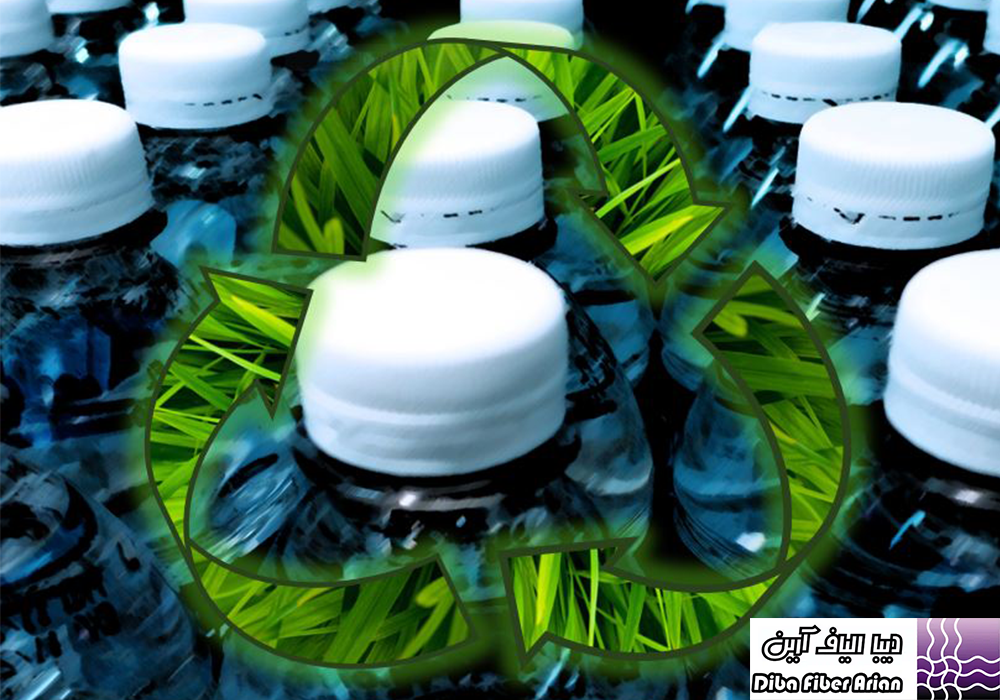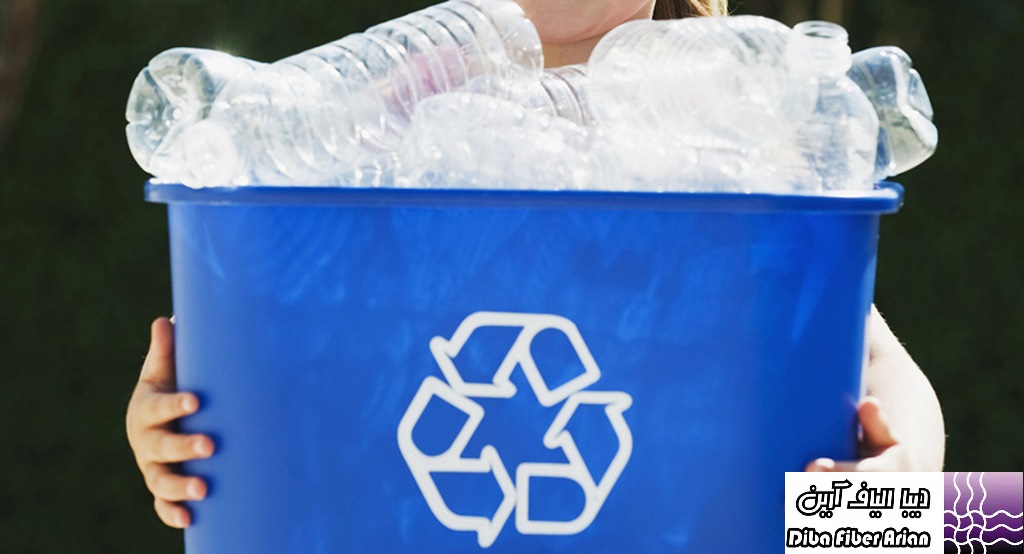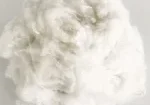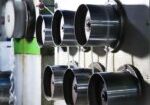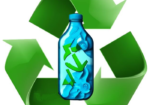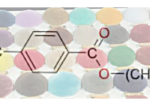Recycling industry and recycled materials
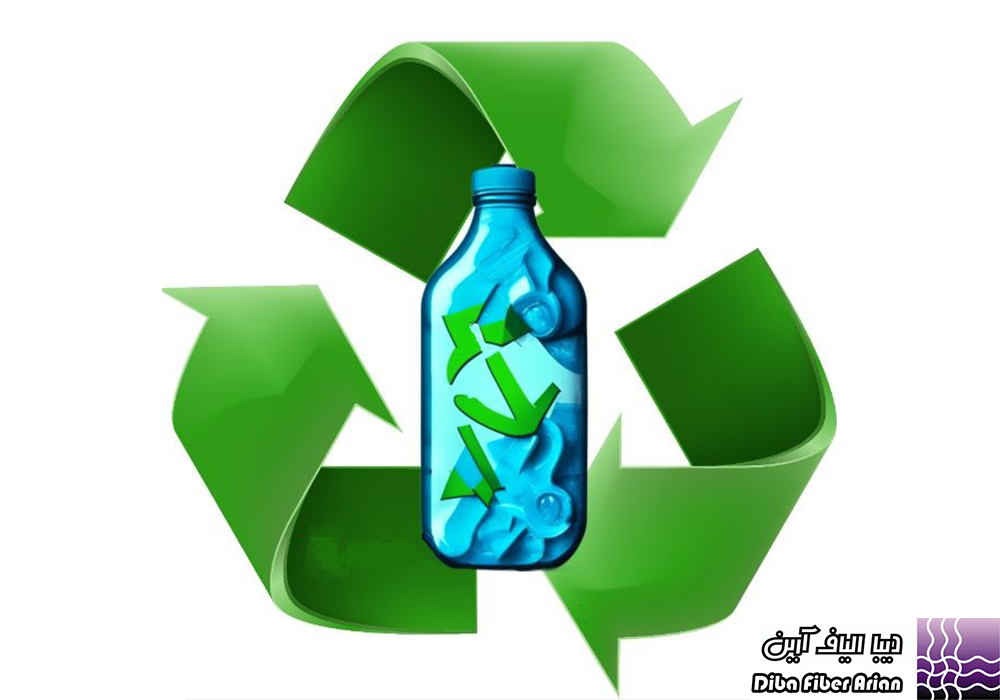
It is no secret that the world population is increasing at a remarkable rate every day, and due to the limited natural resources of the earth to meet our needs, we must look for logical and scientific solutions to reuse old and second-hand goods in order to avoid Increasing global warming, we should also prevent the loss of raw materials. One of the solutions to this problem is the reuse of polymer materials and goods such as PVC and polyethylene terephthalate (the raw material for making PETs)
Recycling industry and recycled materials
In the shadows of obscurity lies the undeniable truth—our global populace burgeons ceaselessly, while the finite bounties bestowed upon us by Mother Earth strain to satiate our burgeoning demands.
A prudent path forward necessitates a scientific and logical approach, one that emboldens us to embrace resolute measures of repurposing used and pre-owned wares
This tenacious endeavor aims not only to thwart the ominous specter of surging global warming but also to safeguard the profligate squandering of invaluable raw materials
The reincarnation of polymer constituents and artifacts, exemplified through the likes of PVC and polyethylene terephthalate (the elemental progenitor of PETs), stands out as an exigent panacea for this quandary. Indeed, within the core tenets of sustainable consciousness lies the fulcrum of hope. The relentless pursuit of creative methodologies shall exculpate us from the remorseless grip of unsustainable consumption. An arduous expedition, propelled by ingenuity and resourcefulness, beckons us toward a horizon teeming with promise—a future bereft of environmental debilitation
Fused in harmonious symbiosis, the salvaging of polymer materials alongside pragmatic ventures, as epitomized by PVC and polyethylene terephthalate, shall bestow upon us the hallowed keys to unlocking a realm of ecological equilibrium. Cognizant of our ethical obligations to posterity, we stride resolutely through a landscape fraught with challenges, exuding an unwavering resolve to adopt circular paradigms of resource utilization. By refraining from relegating discarded treasures to oblivion, we venerate the ethos of conservation, consequently propelling humanity closer to an elysium of sustainability
A poignant journey through the annals of recycling beckons us to unfurl our collective wings and soar above the tempestuous clouds of environmental upheaval
that companies such as Diba Fiber Arian Company have started to operate in this area in the field of textile and production of polyester synthetic fibers, and in this way, by recycling used PET materials, they play an important role in preserving the environment and preventing undue pressure on natural .resources
Stay with us to learn more about ways to recycle polymer materials
For example, due to the high flexibility and good resistance of synthetic fibers used in sports clothes; Athletes tend to use this type of clothing
recycled pet
About 50% of the world’s clothing is made of polyester, and it is predicted that this amount will increase
It can be said that PET is the most common type of polymer (polyester) in the world, which ironically is used as the main raw material in the synthetic fiber production industry. For a better understanding, by
recycling 5 plastic bottles (PET), the required fibers of a t-shirt are provided
Advantages of recycled polyester and recycled synthetic fibers
Compared to virgin polyester, recycled polyester offers almost the same properties, but with significant environmental advantages, which is considered a very important option in our time
Textiles made with recycled synthetic fibers are durable, flexible, lightweight, wrinkle-resistant, quick-drying, stain-resistant, environmentally friendly, and cost-effective. This is why polyester synthetic fibers are often used in all textiles
One of the important advantages of using recycled fibers compared to virgin polyester or virgin fibers is reducing the number of bottles in the environment and landfills. Plastic bottles are reused in the production process of recycled polyester fibers, and this has major benefits for reducing the pollution of the earth as well as reducing water and air pollution. Also, this means less consumption of crude oil and petrochemicals
Interestingly, by using recycled raw materials in the production of hollow or solid polyester fibers, up to 45% energy savings can be achieved compared to using virgin raw materials. Also, with the development and expansion of the recycling industry in the textile sector, there is a significant saving in water consumption for the production of natural fibers, which can be a suitable alternative for other methods of fiber production in countries with dry climates such as Iran
According to the Patagonia company, which is mostly known for producing clothing from synthetic fibers recycled from PET bottles, “Using recycled polyester (recycled fibers) reduces our dependence on oil as a source of raw materials” and consequently It reduces the emission of toxic gases from waste incinerators. More than 87% of the products of the mentioned company, which is one of the leading clothing brands in the United States of America, are supplied from recycled raw materials
According to the World Garment Life Cycle Database (WALDB) reports, using recycled synthetic fibers instead of virgin fibers can reduce CO2 emissions by 50%. This means we are able to produce the same amount of product, but with only half the carbon footprint of conventional production
The process of producing raw materials of recycled hollow and solid polyester fibers
To produce recycled polyester fibers, whether hollow fibers, solid fibers, or micro fibers, recycled PET materials, including mineral water and soda bottles, are washed and crushed with a mill. During several steps, by removing the impurities such as removing the lids and labels of the bottles and washing with substances such as sodium hydroxide, finally, small pieces called PET Flakes are obtained from PET, which are used as raw materials for the production of hollow polyester fibers. and solid is used
Technological advances that recycled fibers provide
With an estimated 658,000 tons of clothing being sent to landfill each year, wouldn’t you agree that textile recycling is a must? Recycling technology has a wide scope and application in the textile industry, especially in the case of polyester materials. Today, new processes are used by manufacturers and recycling industry activists who turn old polyester products into suitable raw materials for the production of textile products, including clothing. This method consumes limited energy and creates very little pollution, and in short, it is environmentally friendly
Final word
The ultimate goal is to reduce the negative impact on the climate in a targeted and rapid way by converting polymer waste into raw materials for the textile industry, which recycling helps a lot. Diba Fiber Arian Company is proud to play an active role in this environmentally friendly approach by producing all kinds of recycled synthetic fibers

